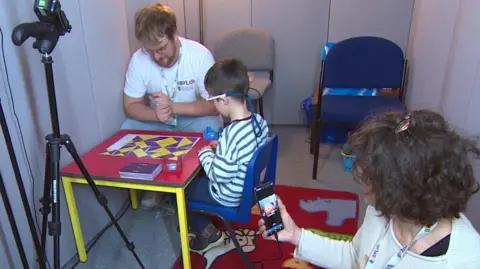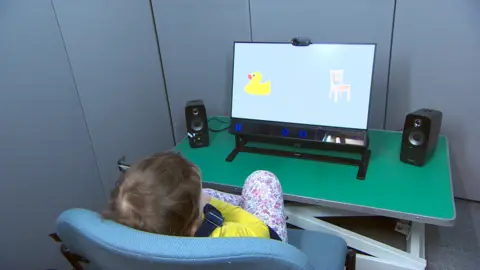Thousands of families help Babylab research
 BBC
BBCA research centre which looks into children's development has seen almost 8,000 families in the 19 years it has been open, bosses say.
The University of Plymouth's Babylab provides frameworks for supporting children in early life in the UK and around the world.
Dr Caroline Floccia, head of the Babylab, said: "We are developing tools that can be used to detect language difficulties in children, which is very important because about 10% of children grow up with language difficulties and these need to be detected early so they can be supported before they go to school."
Since opening, the Babylab has attracted more than £2m in research grants and collaborated with other universities.

Lab tests vary according to the age of the child and include vocabulary and focus.
Research assistant Macie Wainwright said children can be shy at first but they soon warm up and "there is never any pressure, we don't force them".
Mark, whose sons Eli and Isaac have both been involved with tests at the Babylab, said he "is really, really proud that my boys have been able to help".
Students organise the recruitment and visits of hundreds of families per year.
Dr Floccia wants to encourage more parents to bring their children along so their research can continue and help the next generation.
She said families can sign up on the Babylab website.
Follow BBC Devon on X, Facebook and Instagram. Send your story ideas to [email protected].
